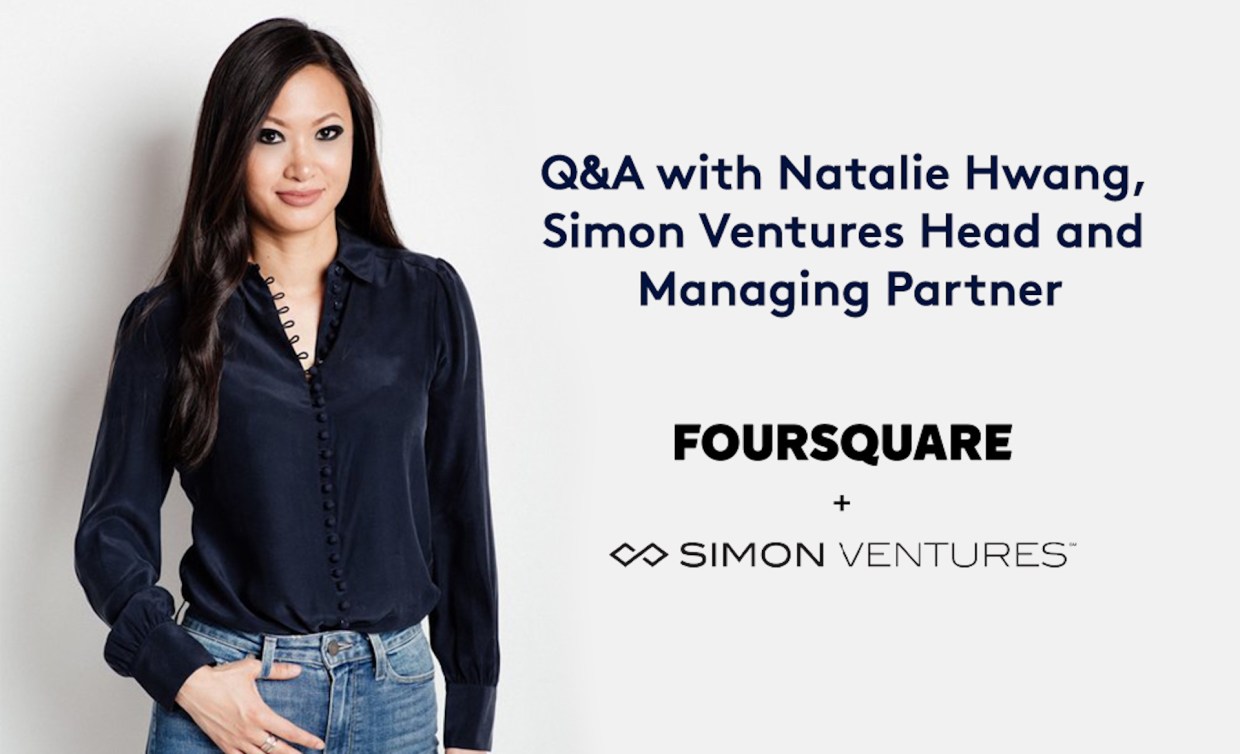While talk of a retail apocalypse continues to dominate the news cycle, it’s important to highlight what is actually thriving—experiential shopping, and mall-based retailers are taking note. In fact, it is this shift that has empowered Foursquare to launch mall mode for Pilgrim SDK. With this release, apps that utilize the SDK can deliver personalized offers to shoppers in real-time, informed by historical visit data about their lifestyle affinities and brand preferences. As a result, retailers can be confident that their marketing efforts are effective and contextually relevant.
With the link between tech and the brick-and-mortar experience strengthening, we’ve asked for additional perspective from Natalie Hwang, Managing Partner and Head of Simon Ventures, our Series F lead investor and the technology-enabled commerce venture fund sponsored by Simon Property Group (Simon), the world’s largest retail property owner.
Why are malls shifting to becoming “destination centers?”
E-commerce has created quite a bit of bifurcation in the retail markets. We’re seeing a significant share of commodity retailing move online, with more in-store retailing going to luxury and experiential stores. The former will compete on price, the latter on service, experience, and unique products. As a result, retailers need to focus more than ever on creating highly focused and impactful store identities to leverage physical retail as an effective vehicle for fostering relationships in the digital age. At Simon Ventures, we believe that offline commerce is about the experience of our day-to-day interactions and how we connect with one another.
Now that we understand why retailers are making this shift, how are they doing it?
To be impactful, brands must understand how to connect with consumers by leveraging real-world touchpoints to offer opportunities for actual interaction, physical touch, and immersive engagement. Given the innately experiential quality of physical stores, they present a unique form of media for brands to engage with their customers, articulate their brand story, and design the kinds of memorable experiences that create cultural relevance. As a result, we’re also seeing a significant expansion of the role of retail estate owners who are also becoming media owners in their ability to provide unique exposure to their brand partners. The shift back toward physical retail is gaining momentum as brands and consumers long for genuine connection. In fact, according to a recent report from PSFK, retailers are expected to increase their investment in offline experiences by 2x.
How does Simon Ventures imagine the mall of the future?
Malls have served as hubs of consumer culture for generations and will continue to play this vital role. Retail will need to evolve with the changing consumption habits of new generations to remain relevant. Simon Ventures, for example, actively invests in properties to expand the potential of retail environments, which span a variety of experiences and use cases that reflect ever-changing consumer interests. These include combining entertainment, media, wellness, learning, and technology in one hub to inspire people, connect them, and add value to their lives.
What are some examples of mall-based retailers adapting well to this more challenging retail environment?
Retailers that are investing in unique brand experiences are adapting well to the evolving retail landscape. These obviously include new brands that stand at the forefront of driving new consumer culture, such as FabFitFun, the beauty, fitness and wellness subscription service (a Simon Ventures portfolio company) and Sezane, France’s first fashion brand born online, to name two.
Traditional retailers have also upped the ante on the experiential retail game, including the flagship Club Monaco on Fifth Avenue which has turned to rotating in-store pop-ups to diversify its selections by offering access to small-batch products not typically found or providing personalized services such as one-on-one consultations. Others like Barneys are collaborating with such creatively dynamic rotating pop-up concepts like Alfred’s Tea Room to offer exclusive experiences that can’t be found elsewhere.
Why did Simon Ventures invest in Foursquare and how can location services (i.e. personalization) be used to enrich the shopping experience within malls?
We canvassed the location intelligence market and believe that Foursquare has a distinct advantage due to its crowdsourced first party dataset, which enables the company to have a deeper understanding of the most important consumer movement trends happening in real-world commerce. Its insight-rich view of the world creates unprecedented opportunity to drive connection and personalize relationships with consumers. This capability is critical to success in e-commerce and we view our investment in Foursquare as an investment in the future of our everyday experiences.



